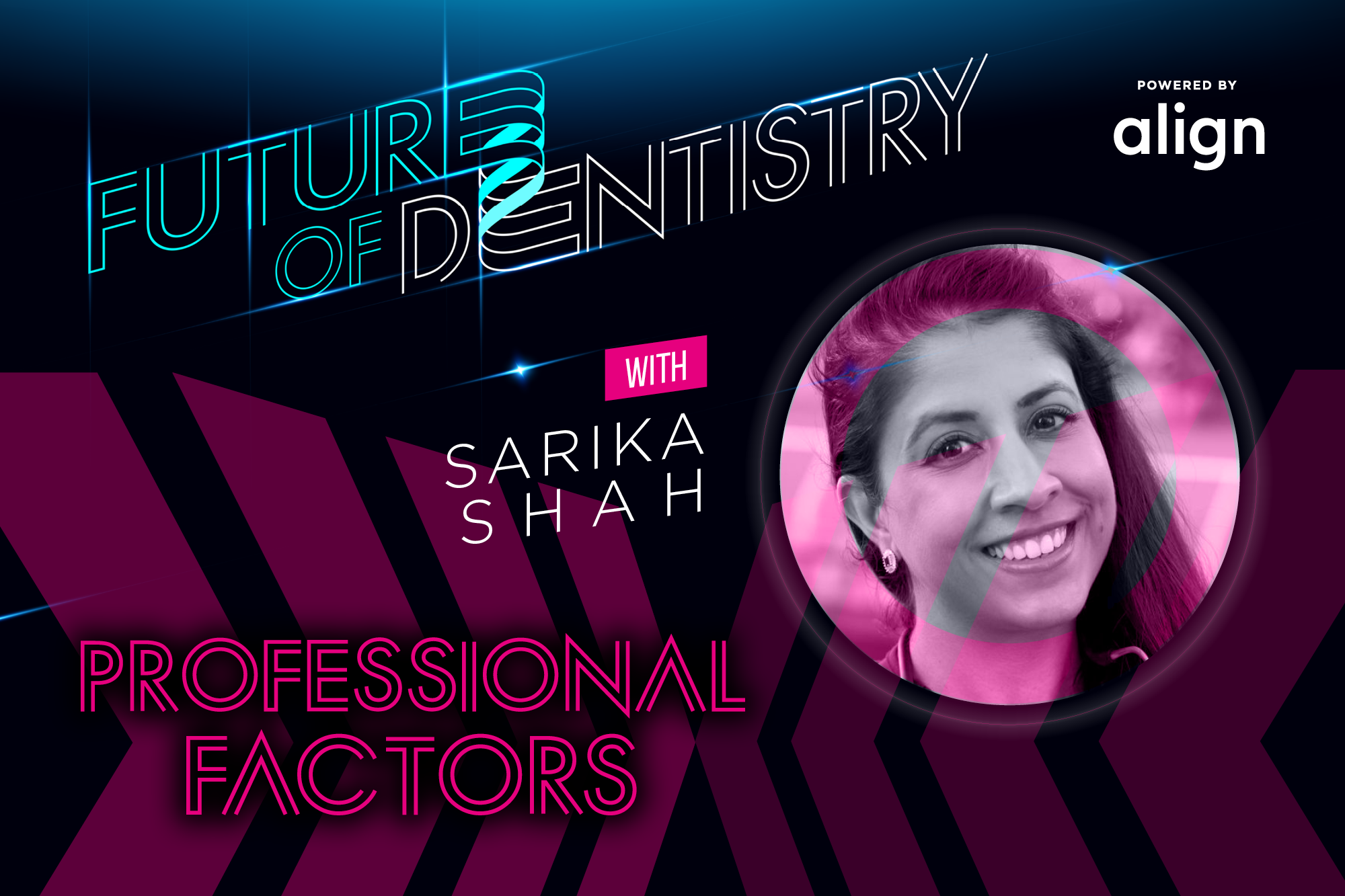
As part of our Future of Dentistry campaign, Dr Sarika Shah reveals how dentistry has changed for her – and where she sees it going.
How has dentistry changed since graduating?
I have been a dentist in general dental practice for 17 years, with 12 of those being in private practice. Access to further education after I graduated was very limited, and so the biggest change I have seen has been the immense access to postgraduate knowledge.
This explosion in information has meant that clinicians have been able to upskill in the areas they want to, in a much shorter space of time. In addition, digitisation of equipment and improvement in software has helped with better diagnoses, communication and time management. With this, and more awareness around the concept of ‘slow dentistry’, the overall patient experience is also transforming.
For the first 10 years of my career, I worked a minimum of five full days a week, which at the time was very normal. I worked this way because I felt that the more patient’s I saw, the more experience I would have and that this would make me a better clinician.
More awareness
Health was always secondary, and I didn’t even know what chronic stress and burnout was until I experienced it myself. There have been some huge environmental changes over the last few years. Currently, society in general has more awareness around health and wellbeing, mindfulness and physical appearance.
In some way or another, this has hugely influenced everyone in our profession. At the same time, I’ve also noticed that patients in private practice have higher expectations from clinical outcomes and more psycho-social needs, as well as wanting to make informed, autonomous decisions.
In 2017, I bought a dental private practice with my husband who had a finance background. Being a practice principal has been a steep learning curve as I’ve had to learn and upskill myself in areas outside of dentistry such as leadership, finance, human resources and litigation.
In addition, we had to navigate through COVID-19, during which I also had a baby. Being a female practice owner with equal partnership, a practicing clinician and a mother I came across several other obstacles that I wasn’t prepared for, but managed to overcome with my ambition, willpower and a close support network.
It’s been a journey of ups and downs. But I’m now in a space where I thrive in health and wellness, a niche of clinical dentistry that I enjoy, and practice ownership.
What do you think the profession will look like in five years time?
It’s a fact that NHS dentistry is shrinking and as it possibly dissolves, different models of private practice will emerge to cater for patients with a variety of incomes.
Artificial intelligence will definitely grow in dentistry, with softwares becoming more sophisticated and emerging, unique methods of remote communication with patients. As all systems become more automated, it may contribute to a practice business model of reduced clinical time, but efficient systems and processes, and increased profitability.
The combination of a highly intense working day and more awareness around wellness is leading to more dental professionals wanting to work less hours overall and clinicians retiring from the profession earlier.
I believe this trend has already begun. However, there will continue to be a high demand for general dentistry, leading to a more distinct multidisciplinary approach within practices, involving more dental therapists working within their full scope.
What do you hope the profession of tomorrow will look like?
I’d hope that in the future our profession as a whole is more united and supportive of each other. I believe that existing universities need to review their curriculums more regularly, or create new ones, to stay on par with how the profession is progressing.
I think more bridging hands-on training programmes and mentoring needs to be introduced in practice, so that young dental professionals are more confident providing high quality dentistry, as well as able to maintain their passion for the profession and still feel valued.
Similarly, I would very much like for new dental nursing and dental administrative courses to be established, creating more professionalism and value in this sector, so that as our profession evolves we have higher quality and more productive teams.
Being a female practice owner, I would love for more women to own practices and stay integrated within the profession so that they can continue to do what they are passionate about and still maintain their home-life-work balance.
I know that if we continue to embrace new technologies and use it to our advantage, we will create better patient experiences, quality of care, growth, profitability and the healthy work-life relationship that we all seek.
Finally, I would hope for our nation to be recognised as the best in the world in providing dental care in every aspect. However, to get there, we first have to ask ourselves as individuals: Where are we as dental professionals today? Where do we want to be in five years’ time? And what can we do to contribute to and positively impact the future of our profession?
Keen to get involved in our Future of Dentistry campaign? We are looking for contributors! Email [email protected] to get involved.
Read more Future of Dentistry articles here:
- How we could solve the cost of living crisis within NHS dentistry
- What do dental students think about the NHS?
- How to attract and retain dental nurses
- Introducing the Future of Dentistry.
Follow Dentistry.co.uk on Instagram to keep up with all the latest dental news and trends.


